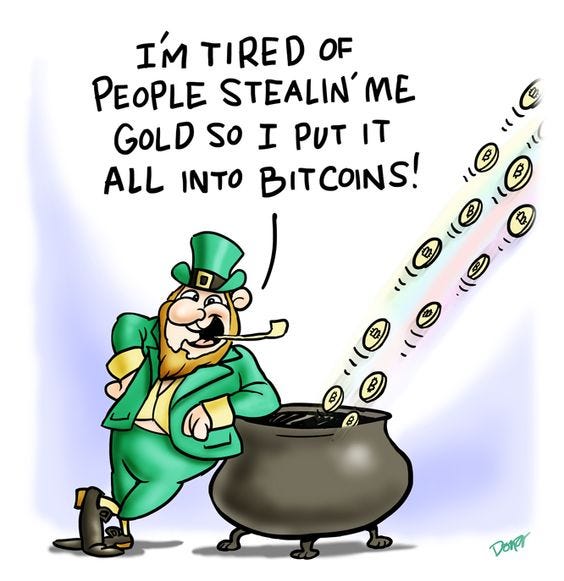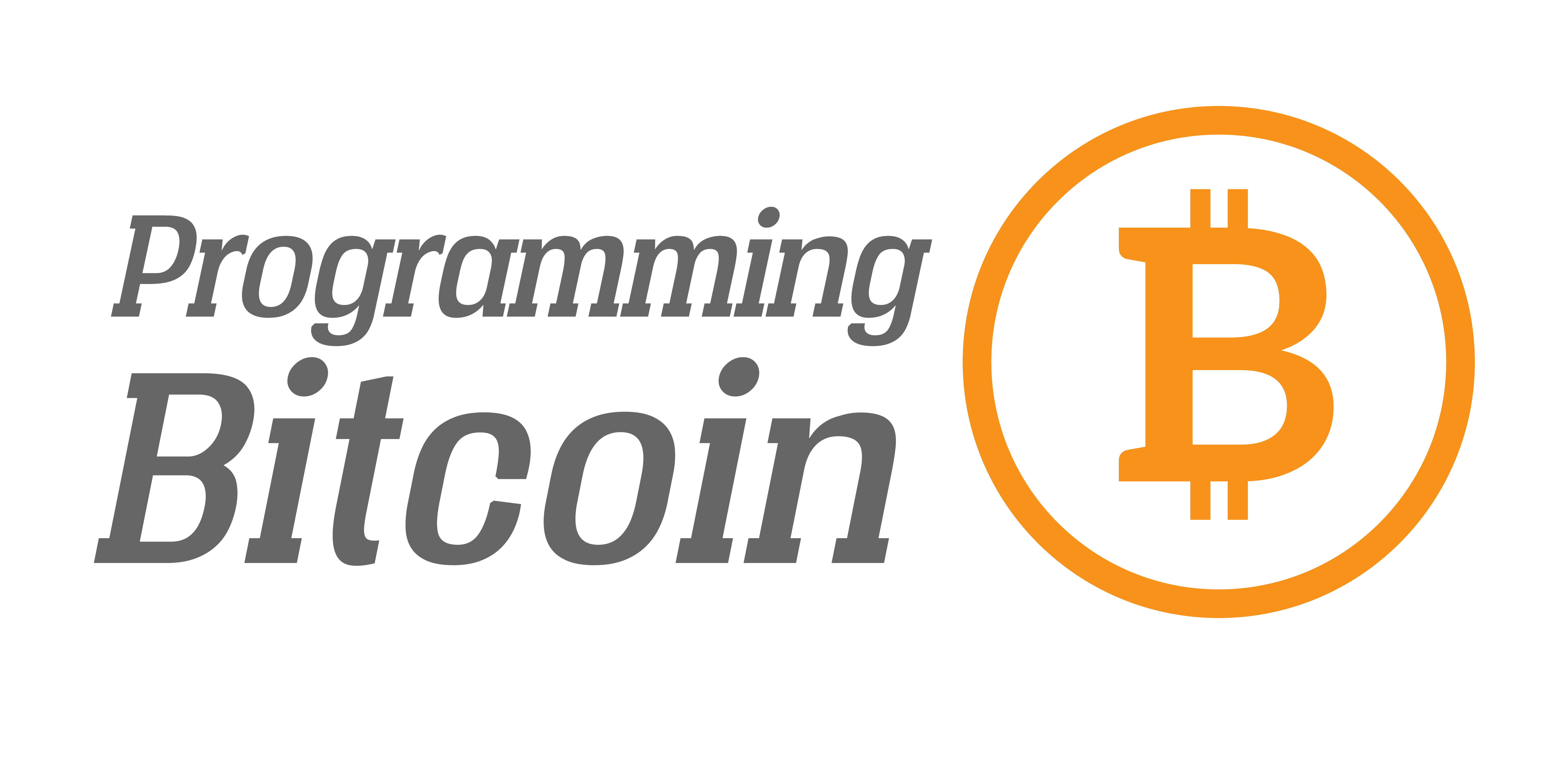What is Bitcoin? Part 2
In the last article, we established that Bitcoin is decentralized, digital scarcity which is uncontrolled by any party and to a degree natural, as in anyone can mine, transfer and/or store without permission. This is in stark contrast to centralized scarcity which is controlled and artificial, as in you need permission to do some or all of the activities you might want to do with the scarce item.

In this article, we’re going to look at Bitcoin’s properties as decentralized, natural, uncontrolled money, specifically how they compare with decentralized money in the past.
Desirable Properties of Money
The ideal money properties that make money convenient, useful and worth holding. The properties that give money significant convenience and usefulness are divisibility, securability, recognizability, portability, durability and fungibility. Each of these properties make transacting with money easier and reduce friction. Let’s look at each property, define what would be a good one vs. a bad one and see how Bitcoin stacks up.
Divisibility
Money that is divisible allows for precision in trade. Money that’s not very divisible is inconvenient because one side of the trade will end up with slightly less value. Thus, having good divisibility in a money is a major advantage.
Something that’s not very divisible is something like an expensive baseball card. Fractions of a card don’t trade at the same proportion and thus makes trading with it inconvenient. Something that’s pretty divisible is the US dollar, which continues to be divisible down to the penny when using physical cash.
Bitcoin is divisible down to 1/100,000,000th of a Bitcoin, or about $0.000035 as the smallest unit on-chain. Lightning channels allow for even finer divisibility down to 1/1000 of that or $0.000000035, which Adam Back has pointed out, is about the cost of a grain of sand. That’s 300x the divisibility of the US dollar on-chain and 300,000x the divisibility of the US dollar in a Lightning Channel.
Securability
Securability means that money is hard for someone else to seize. Good money should be relatively difficult to take away or confiscate. Physical gold is fairly difficult to confiscate since the physical gold has to be located and physically taken, but money in a US bank account is not hard to take away. In fact, governments confiscate dollars in bank accounts all the time as a way to deter what they consider bad behavior.

Generally, anything that has a dependency on a third party is more liable to confiscation than something that is a bearer instrument. Bitcoin is a bearer instrument (that is, possession really means ownership, not what some third party registry says) and is therefore less liable to confiscation.
Furthermore, because Bitcoin can be secured with Script, Bitcoin can be secured in a multitude of ways, including with m-of-n multisig, timelocks and so on. There are far more options to secure Bitcoin than with a physical asset like gold.
Note that though other smart contract languages may provide more options with respect to the actual locking mechanism, such an ability is useless without real decentralization. The DAO on Ethereum was secured in a multitude of ways, but when a smart contract lawyer figured out a way to get the ETH out in a particular way, the entire chain was changed as to invalidate that transaction. That’s a third party that decided on whether someone owns the money or not, which is no different than a US bank account.
Furthermore, the securability has to be provable. This was another problem with the DAO in that the complexity was overwhelming and the contract was easy to execute in a way that the creators didn’t intend. Money that’s easy to lose due to complexity is not securable at all.
Recognizability
Recognizability means that the money is easy to recognize and hard to counterfeit. Gold is relatively easy to recognize as there are good chemical tests that exist to verify that it’s gold. Something like concert tickets are notoriously hard to verify and are easy to counterfeit.
Recognizability is closely related to the cost of producing the good. If the money costs a lot to produce, it’s generally not economical to try to counterfeit it. If the money costs very little to produce, there is an economic incentive to try to counterfeit it. Thus, gold, being very difficult to produce, generally has good recognizability. Concert tickets are pieces of paper, which make counterfeiting very easy and thus hamper recognizability.

That said, even with large gold bars, there are ways to make a bar look like gold, but not be 100% gold. Bitcoin doesn’t suffer from that problem, because recognizability is based on proof-of-work.
Bitcoin is very difficult to produce because finding proof-of-work is very hard. Counterfeiting Bitcoin means isolating a node and giving it blocks withexpensive proof-of-work which spend differently than the main chain. This is a very difficult attack to pull off for a variety of reasons, and generally uneconomical, which points to how Bitcoin can be recognized: Bitcoin is recognized by looking at any block explorer or full node. As proof-of-work is very expensive, faking this data is very hard and thus Bitcoin is easily recognizable.
Portability
Portability means that the money is easy to transport. Spices, for example, used to have high value density and were thus great to use for trade. This meant that spices had really good portability. Land, on the other hand, is very difficult to transport or lacks portability, and thus makes for a terrible money.
Portability is correlated with high value density. This tends to be in opposition to divisibility for physical items. Gold is very value-dense, but that also makes it less divisible, at least recognizably.
Extreme amounts hamper portability even when something is very value-dense. Even something as value-dense as a $100 bill (weighs roughly 1 gram) quickly gets out of hand. $5M in $100 bills weighs over 100 pounds! For truly large amounts in the realm of billions, this is not something anyone can reasonably hope to carry without the aid of machinery.
Bitcoin has essentially infinite value density since Bitcoins weigh nothing. Even when using something like a physical hardware wallet, the value and weight are not correlated as any private key can contain any number of Bitcoins. The fact that Bitcoin can be sent digitally also means that there’s no need to physically transport the private keys. Bitcoins can be sent all over the world at the speed of email, which is superior to any other bearer instrument.
Durability
Durability is the ability of the monetary medium to not degrade. Gold has serious durability as it doesn’t really react with any other chemical. Something like mackerel (used in prisons ever since smoking was banned), on the other hand, goes bad after a while and thus doesn’t have much durability.

Durability has traditionally meant physical durability, which, of course, is what makes silver and gold so good as money. Unfortunately, even bars of gold typically go down in weight as gold flakes off over time.
In Bitcoin durability is not physical durability per se, but the durability of the ledger. As Bitcoin is not centrally controlled, the durability of the Bitcoin is near infinite. For ledgers that are centrally controlled, the coins cannot be said to be that durable. After all, the central, third party can “delete” or “steal” your coins at any time. Bitcoin is durable as long as it stays decentralized.
Fungibility
Fungibility is the ability for two of the item to essentially be indistinguishable. Dollars and gold are pretty fungible, while diamonds are not due to each stone’s uniqueness.

Perfect fungibility is extremely difficult because humans have preferences about almost everything. Even in the case of gold, where 1 oz should be the same as 1 oz everywhere, there are subtle differences. A bar that’s 99% pure will trade at a slight discount to a 99.99% pure bar. This premium exists even on a per atom of gold basis. The ostensible reason is that it’s tougher to get 99.99% pure gold in the form of a bar and such bars are thus rarer.
Even with dollar bills, the crisp, clean $100 bills will trade at a premium to the older crumpled ones. This is because in many third-world countries these bills are used as gifts and people want to present nicer, crisper bills as gifts if possible.
For Bitcoin, there are certain Bitcoins like coinbase outputs, which are preferred and trade at a premium. Other outputs which may be linked to criminal activity may trade at a discount. The protocol itself doesn’t distinguish coins, but people do and unless each coin was perfectly hidden with privacy, perfect fungibility is not possible.
That said, Bitcoins are reasonably fungible and the market so far hasn’t had too many instances of coins being discriminated against because of their source.
Conclusion
There are many reasons Bitcoin is superior to other forms of money from the past. The rock-solid monetary policy, the divisibility, secureability, recognizability, portability, durability and fungibility are on par or better than every other form of money that has existed before.
Furthermore, these are not properties that altcoins automatically have. Securability and durability in particular are suspect on coins with a centralized dev team as both require trusting a third party. Bitcoin is truly better decentralized money and all other pretenders to the throne are not.


Comments are closed